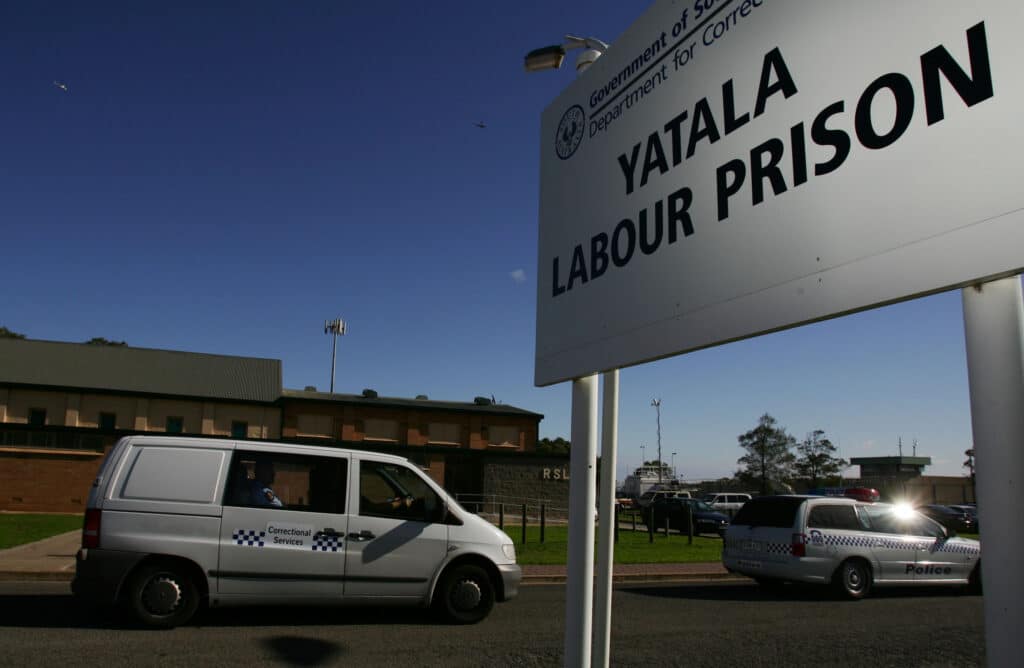
The plaintiff has claimed she was exposed to “ridicule” and “cruel and degrading treatment” from prison workers while at the Yatala Labor Prison in Adelaide, South Australia.
She has sought to sue the Government of South Australia’s Department of Correctional Services (DCS) and the Central Adelaide Local Health Network (CALHN) for failing to comply with equalities law and house her in a women’s prison and provide her with key services.
According to ABC News, the woman was arrested in February 2019 and remanded in custody. A magistrate court stressed she should be taken to a women’s prison.
Yet despite being legally female, the DCS instead imprisoned her at Yatala, the lawsuit says.
After being released on home detention bail a month after and the charges scraped, she was arrested once more in 2020. While initially taken to the Adelaide Women’s Prison, she was again transferred to Yatala.
While behind bars, the woman claims a male guard referred to her as “he” or “it” while making crude remarks about her genitalia. She was routinely strip-searched and held in solitary confinement, the suit alleges.
Other prisoners humiliated her on a daily basis and threatened to rape her.
The complainant also alleges CAHL, which provides healthcare services across Adelaide, performed invasive medical examinations against her will and withheld vital hormone and anti-depressant drugs from her.
Both government departments sought to have the woman’s lawsuit overturned – there was a lack of detail about what “alleged contraventions occurred, who performed or failed to perform them”, they countered.
The joint application to the South Australian Civil and Administrative Tribunal said the plaintiff did not clarify what “services” she should have received under the Equal Opportunity Act.
“Inadequate particulars are provided as to dates and times of the comments made by guards, but in any event, at the time of making such comments, no service was provided,” the application said.
“In terms of medical examinations, it is not clear what the ‘service’ is … adopting a policy is not a ‘service’ … strip searches are not a ‘service’.”
The tribunal court dismissed the departments’ application, ruling that the complainant’s case has more than enough merit.
The court pointed to the DCS’ own policy for trans and intersex inmates runs on a case-by-case basis to ensure trans and intersex prisoners are protected from discrimination and have appropriate clothing and bathroom facilities.
The policy “acknowledges the need to pay attention to the needs of transgender and intersex prisoners, including references to topics such as the need to treat offenders humanely and with dignity”.
“It will be unlawful discrimination if a transgender prisoner is accommodated less favourably than non-transgender prisoners just because of the gender they identify,” the policy adds.
The DCS said in a statement that the agency is “committed to meeting the needs of transgender and intersex prisoners and ensuring their safety is not compromised”.
Trans inmates, it added, are provided with an “individualised management plan … to take into consideration their individual needs”. Intersex people, however, are not mentioned in this.
“The department’s relevant policies ensure transgender and intersex offenders and prisoners are treated with equivalent respect and dignity that is accorded to all offenders,” the statement added.
“Given this matter is still before the court, no further comment can be made.”
